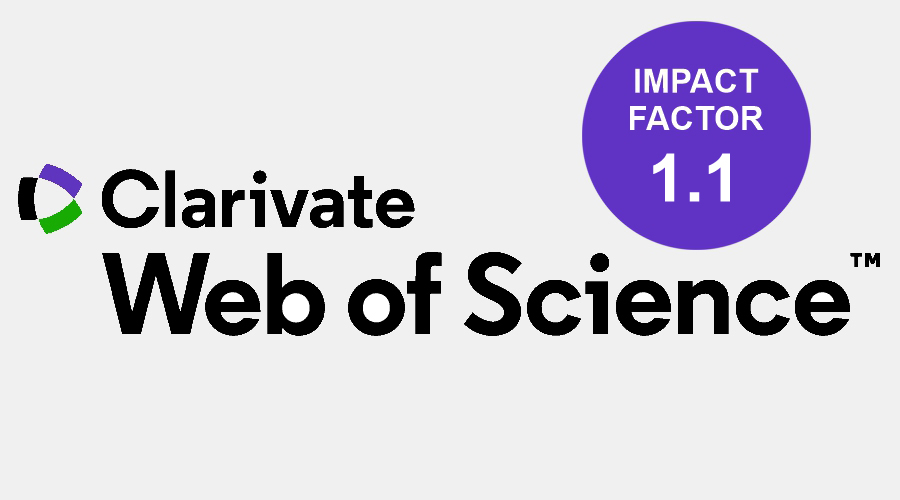Measuring and interpreting emigration intentions of Hungarians
Abstract
International migration and problems associated with it attracted increasing attention among geographers. Hungary has been affected by various forms of international migration since the systemic changes of 1990. This paper focuses on the emigration intentions of Hungarians, with special emphasis on regional differences, and age and gender dimensions. For the sake of analysis a questionnaire survey was carried out which resulted a database containing the answers of nearly 10 thousand respondents nationwide. During the survey we measured socio-economic status, age, gender, migrations intentions and previous migration records. Subjective quality of life factors, like happiness and satisfaction which may influence the migration intentions were also recorded. Based on the survey the main push factors of potential migration were defined. Our results confirm a more globalised pattern of migration intentions where women are at least as much involved in the process of preparation as men, and regions with good economic performance are equally affected as regions with economic hardship.
References
Blaskó, Zs and Gödri, I. 2014. A munkaerőpiaci kivándorlás Magyarországról; szelekció- és célország-választás az „új migránsok” körében (The emmigration from the labour market of Hungary; selection and choice of target country among the “new migrants”). Demográfia 57. (4): 271–307.
Blaskó, Zs., Ligeti, A.S. and Sík, E. 2014. Magyarok külföldön – Mennyien? Kik? Hol? (Hungarians abroad – How many? Who? Where?). In Társadalmi Riport 2014. Eds.: Kolosi, T. and Tóth, I.Gy., Budapest, TÁRKI, 351–372.
Dabasi Halász, Zs. and Hegyi Kéri, Á. 2015: „Fel/eltörekvő” generáció migrációja Miskolcon (“Upstart” generation migration of Miskolc). Északmagyarországi Stratégiai Füzetek 12. (1): 17–26.
Dayton-johnson, J., Pfeiffer, A., Schuettler, K. and Schwinn, J. 2009. Migration and Employment. In Employment is the Mayor Route out of Powerty – How Donors can Help? Background Papers. Paris, DCD/ DAC, OECD, 149–177.
Egedy, T. and Kovács, Z. 2011. Budapest as a destination of migration: the view of transnatonal creative workers. Hungarian Geographical Bulletin 60. (2): 161–188.
Gödri, I. 2005. Nők és férfiak a migrációs folyamat különböző szakaszaiban. A magyarországi bevándorlás a nemek perspektívájából (Women and men are at various stages of the migration process. The Hungarian immigration from the gender perspective). In Szerepváltozások. Jelentés a nők és férfiak helyzetéről. Eds.: Nagy, I., Pongrácz, T-né, and Tóth, I.Gy., Budapest, TÁRKI – Ifjúsági, Családügyi, Szociális és Esélyegyenlőségi Minisztérium, 149–164.
Hárs, Á. 2016. A munkaerőpiaci elvándorlás, bevándorlás és a magyar munkaerőpiac. Jelenségek, hatások, lehetőségek (The Hungarian labour market and its emmigration and immigration processes. Phenomena, impacts and possibilities). Budapest, TÁRKI.
Hidasi, J. 2011. Migráció és mobilitás (Migration and mobility). In Tanulmányok a nemzetközi migráció köréből. Ed.: Nyusztay, L., Budapest, Perfekt Gazdasági Tanácsadó, 44–56.
Illés, S. 2008. Indirect estimation on the types of international elderly migration in Hungary. Romanian Review on Political Geography 8. (1): 55–63.
Lakatos-Báldy, Zs. 2011. Válság, kulturális diverzitás, migráció – egy nemzetközi konferencia tükrében (Crisis, cultural diversity and migration – in the light of an international conference). In Tanulmányok a nemzetközi migráció köréből. Ed.: Nyusztay, L., Budapest, Perfekt Gazdasági Tanácsadó, 189–203.
Langer-Rédei, M., Illés, S., Karácsonyi, D. and Kincses, Á. 2011. Ukrán állampolgárok Magyarországon (Ukrainian citizens in Hungary). Budapest, Európai Integrációs Alap.
Marien, A. 2015. A területi identitás magatartási megnyilvánulásai, különös tekintettel a költözési szándékra és annak magyarázatára (The behavioural manifestations of the regional identity, especially the explanation of the migrational intention). Észak-magyarországi Stratégiai Füzetek 12. (1): 4–16.
Molnár, J., Gál-Szabó, L., Siska-Szilasi, B., Vadnai, P., Mohos, M. and Dudás, G. 2015. Legújabb trendek a magyarországi kivándorlásban (Recent trends in Hungarian emigration). Észak-magyarországi Stratégiai Füzetek 12. (1): 27–37.
Nyáradi, G. 2011. Tudástranszfer és kooperáció a migrációkutatásban (Knowledge transfer and cooperation in the migration research). In Tanulmányok a nemzetközi migráció köréből. Ed.: Nyusztay, L., Budapest, Perfekt Gazdasági Tanácsadó, 175–188.
Portes, A. and Böröcz, J. 1989. Contemporary Immigration: Theoretical Perspectives on its Determinants and Modes of Incorporation. International Migration Review 23. (3): Special Silver Anniversary Issue, 606–630.
Robila, M. 2010. Eastern European Immigrant Families. New York–London, Routledge.
Rohr, A. 2012. Kivándorlási, külföldi munkavállalási tervek a PTE hallgatóinak körében (The plans of emigration and working abroad of the students of University of Pécs). Acta Sociologica 5. 181–190.
Salt, J. 2001. Current trends in international migration in Europe. Strasbourg, Council of Europe, CDMG 33.
Sansum-Molnár, J. 2012. A külföldi munkavállalás lehetősége a magyar felsőoktatásban tanulók terveiben (The possibility of working abroad in the future plans of Hungarian students). In VI. Magyar Földrajzi Konferencia Tanulmánykötete, Szeged, Szegedi Tudományegyetem, 618–627.
SEEMIG 2014. Helyzetkép a magyarországi elvándorlásról (Emigration status report of Hungary). SEEMIG – Managing Migration in South East Europe Project, Press copy. Budapest, KSH.
Sík, E. 1999. Migrációs potenciál a mai Magyarországon. A munkaerő migrációja és az Európai Unió (The migration potential in the present Hungary. The workforce migration and the European Union). Európai Tükör 61. 93–118.
Siska-Szilasi, B., Kóródi, T. and Vadnai, P. 2016. Menni vagy maradni? Egyetemisták kivándorlási szándékának statisztikai vizsgálata (Staying or leaving? The statistical analysis of the emmigration intention of the university students). In Social Geographical Challenges and Search for Adequate Answers in East-Central Europe of the 21st Century. Eds.: Berghauer, S. et al., Berehove, International Geographical Conference, UA, 211–218.
Szabó, A. 2015. Az egyetemisták és főiskolások Magyarországon (University and college students in Hungary). Szeged, Belvedere Meridionale.
Copyright (c) 2017 Beáta Siska-Szilasi, Tibor Kóródi, Péter Vadnai

This work is licensed under a Creative Commons Attribution-NonCommercial-NoDerivatives 4.0 International License.






